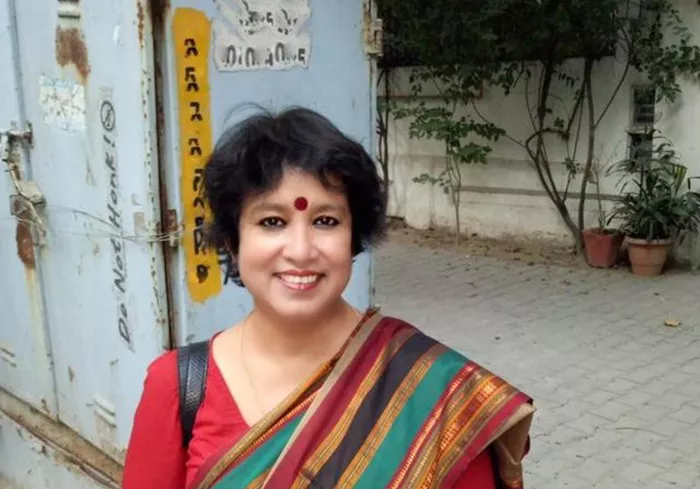Despite Bangladesh’s deep reverence for language, literature, and secularism—values embodied by the annual Amar Ekushey Boi Mela (Book Fair)—freedom of expression remains under constant threat from religious extremism. The recent shutdown of a publisher’s stall for displaying works by exiled feminist writer Taslima Nasrin has reignited urgent debate about censorship, blasphemy laws, and the power of extremist mobs to silence dissent.
The Book Fair, held in February to honor the martyrs of the 1952 Bengali Language Movement, has become a symbol of cultural pride. However, it has also become a flashpoint for attacks on secular writers. Over the years, fundamentalist violence has targeted progressive thinkers, including the brutal killings of Humayun Azad and Avijit Roy, both vocal critics of religious dogma.
This year, the attack on Sabyasachi Prokashoni, a publisher of Nasrin’s books, echoed past events. A crowd identified as Towhidi Janata stormed the stall, demanding the removal of Nasrin’s work, accusing it of blasphemy and atheism. The police responded by temporarily shutting down the stall and covering it with a tarpaulin. Only one arrest was made.
While officials, including Prof. Muhammad Yunus, condemned the violence, the damage was already done—once again showcasing the government’s unwillingness or inability to defend intellectual freedom against religious extremism.
Taslima Nasrin, 63, remains a controversial figure for her fearless criticism of Islamic patriarchy and her advocacy for women’s rights and secular humanism. Her seminal novel Lajja (Shame), which addressed communal violence against Hindus in Bangladesh, was banned, and she was eventually driven into exile under death threats and fatwas.
Her outspokenness—on subjects ranging from religious misogyny to free speech—has made her a target not only in Bangladesh but also in India. In 2007, she was assaulted at a literary event in Hyderabad, and multiple threats have followed her across countries. Despite this, she has won prestigious international awards including the Sakharov Prize for Freedom of Thought, and remains an icon of resistance against religious repression.
Taslima’s trajectory parallels that of other exiled writers like Daud Haider, who was jailed and tortured for a poem critical of Islam in the 1970s. Like Nasrin, Haider was never allowed to return safely to his homeland.
What’s most troubling is that even today, decades later, Bangladesh continues to suppress dissenting voices instead of upholding the spirit of Ekushey—freedom of language, thought, and belief. The threats against writers and intellectuals persist, and the state often capitulates to the loudest, most intolerant factions.
As Taslima herself noted, the silence or complicity of authorities only empowers the extremists. If a society cannot defend its most provocative thinkers, it cannot claim to be free.

